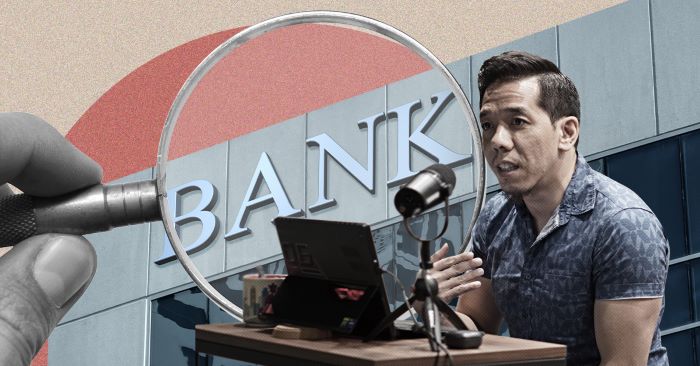Truelogic Episode 63 Recap: Link Building 101

In the world of SEO, there are things that make you go rank, and I would broadly define those as authority, content, locality, and popularity. Today, we’re going to talk about popularity, and in terms of popularity, most search engines rely on backlinks.
Backlinks serve as an endorsement of your content and show search engines that other websites consider you an authority or a valuable resource that’s worth linking to. However, not all backlinks are created equal, and as search engines like Google evaluate the quality, relevance, and authority of the links, the value of the backlinks you acquire, therefore are not all the same.
So this is why link building plays such a critical role when it comes to establishing your website as an authority, as a resource, and as a result on the first page of Google search. But you know, as always, I like to tell people link building is a last-mile strategy. It’s not a first-mile strategy.
So once you’ve done all of the optimizations, technical optimizations, and content optimizations, you can then jump to link building because it is a popularity game. So in this episode of the Truelogic DX Podcast, we’ll review the basics of link building and provide you with some of the tools and the knowledge you need in order to acquire high-quality backlinks for your website. So let’s get started.
So, What is Link Building?
According to Google, this is Andrey Lipattsev that says links are one of the three major ranking factors in Google, and I agree it is of a three major ranking factors in Google. It is authority, content, links, and then localization if you want to appear on the map. So if you want your website’s pages to rank high on Google searches, you will almost certainly need links, right? Sometimes your site’s authority and your site’s content are only good enough to get you to position seven good enough, only to get you to position 11, but not good enough to get you to positions one, two, or three, which is sort of where you really wanna be.
Link building is the process of acquiring a mention, a citation, a link, or a hyperlink from another website going to your website. So you acquiring an inbound link.
Now, I also think, though, that one of the biggest misconceptions about link building is that a lot of people say, oh no, it’s black hat. No, it’s a shortcut. But you know, it’s not, it’s sort of essential. If this podcast could last 40 minutes, I can tell you the origin of how Google came up with the concept of backlinking because they did invent this concept. But a link is essentially another website vouching for the fact that you are an authority in your field.
What is the Importance of Link Building in SEO?

If you guys take a look at some of the best-performing websites out there, you’ll notice that websites that have link building incorporated, or at least websites that have naturally huge digital footprints, naturally huge backlink portfolios tend to perform better on Google than websites that do not.
If I’m not mistaken, there was a study by, I think it was Siege Media and Clear Scope, and I think in their report it was something like 45% of businesses that incorporated link or businesses that incorporated link building into their strategy had a 45% better success rate than those that don’t.
Sadly, almost half of SEOs don’t have a link-building budget. And when I see link building budgets, link building, if you do it right is time-consuming, it takes about six to 12 hours to get a good backlink.
And so about 40% of SEOs don’t actually have budgets for link building. At least 65% of digital marketers say that link building is the hardest part of SEO. It is. That’s why we give it to, you know, in Truelogic, we give it to more our more entry-level people because this is brute force work, right? We don’t give it to our analysts. Our analysts review it and audit it and create the strategy, but the brute force has to be done by more entry-level people because it doesn’t matter how good you are, a significant amount of brute force really required in order to get link-building done.
What is Good Link Building?
Back then, the more mentions you had, the better, and, the quality of the mentions you got sort of really didn’t matter. And that’s why there were automated links, social bookmarks, automated machines that got you posted on different directories, on different link forms, and so on and so forth.
But the Penguins sort of put an end to that. The Penguin algorithm, I think 2012 Feb, if I’m not mistaken, sort of put an end to that, and an emphasis on good quality links became more important.
- Authority
Now, what makes a good link, first off, is in the same way that authority matters to Google in terms of whether you will rank authority matters to your link, it is quite a different thing if you get interviewed by just some random person on the block of your street and another to be interviewed by a journalist on national TV. The level of authority is different.
So the authority of the backlink matters. Normally, the way we measure authority is either with Moz’s domain authority score or Sam’s authority score, or with Majestic’s trust flow score, and so on and so forth. These are all just analogs for page rank. But what makes a good backlink is good authority.
And right now, the most common way SEOs measure authority is the DA or the domain authority of the page.
- Relevance
The next thing that makes your link good is relevance. Take, for example, Truelogic in the digital marketing space. So if we co-publish, co-authored, contributed to business publications, and digital magazines, that would be relevant. But if we published in fashion car sales and so on and so forth, that would not be a relevant link. It wouldn’t look good. It would seem like, oh, this brand is just trying to get a mention wherever it can. So relevance now more than ever, has become more important.
- Anchor Text
If you are an SEO and you’re listening, here’s a good practice, go to AHREFs if you’ve got the tool and then plug in truelogic.com.ph and then take a look at our anchor link distribution. We have publishing partners that sometimes point a link that says SEO or SEO service to our SEO page, but the majority of the time they refer to us as Truelogic, Truelogic Inc., truelogic.com.ph, right? All of those are different anchor texts. Anchor texts are just the ways websites refer to your website.
The more uniformity there is in your anchor text, the more suspicious your link-building activities look like, regardless of how legit you’re doing it. If you are wanting to rank for, let’s say you’re one of the low-cost carriers in the Philippines, and you wanna rank for cheap tickets, cheap airline tickets, if 80% of the time other people, other websites refer to you as cheap airline tickets and then point to your ticketing page, that’s suspicious, right? Why would they talk about you as that cheap airline ticket provider and not your brand name? So your anchor text distribution needs to look natural. A natural anchor text distribution is always brand dominated, okay? Anchor text, anchor text distribution, must be brand dominated.
- Attributes of the Links
The next one is the attributes of the links. And when I say attribute, a link can have an attribute that’s called a follow or a no follow. By default, a link is a follow. A bot sees the link and follows the link, but that’s what that means. If you put a no follow attribute, that means the bot sees the link, takes note of the link, and the link is just there like content but does not leave the website and continues to scan the content of that page. There is a natural ratio like it is unnatural that all of your links are followed. There is a natural distribution between follow and no follow links.
So let’s say you are an SEO manager. Let’s say you are a digital marketing manager and your SEO’s got you 10, 12, or a hundred links. When they give you two no follow links, one no follow link. It’s absolutely natural that some of your links will not follow. Some publications set all their links to no follow, right? So that’s perfectly natural and it’s okay.
- Destination of your Links
Another one is the destination of your links. It needs to matter. If you’re talking about, like think for example, if you were referring to Truelogic and then you said you, you said web design provider, that link should point to our web design service page and not the homepage, because true logic in its entirety is not a web design company.
Like web design company is describing 20% of the business, not a hundred percent of the business. If you said digital marketing company or digital marketing agency, sure pointed at the homepage, but it would sort of be like referring to Epson as a printer manufacturer. But that’s not everything that Epson is. Epson does not just produce printers.
Not All Links are Equal: Bad Link Building Practices

- Link Exchanges
There are situations where you are looking for mileage with a well-respected publication and they want mileage from you in return. If you can create compelling content for your audience that reasonably sites them as a resource, that’s okay. But if everybody you acquire a link from, if everybody that links to you, you link back to this is a link exchange or a linking scheme, right? And these are actually in the Google webmaster quality guidelines. So you don’t want to do that. This can happen every now and then.
- Prioritizing Authority vs. Relevance
Now, remember what I said earlier about what made a link, good authority and relevance were the first two things I talked about. And sometimes they can be at odds with each other. Take, for example, the easiest way to measure authority right now is with a Moz DA score.
And if I had to choose between, let’s say, a marketing publication that was a DA 20 and a car dealership website that was a DA 45, I would take the DA 20 anytime a day, right? Because the marketing magazine is contextually related to the field I’m in, and the car dealership is not.
So, you know, because I’m not a car dealer, I don’t sell cars, I don’t optimize cars, I don’t even paint cars. Whenever you’re faced with the choice of authority versus relevance, prioritize, relevance. This used to be similar to a question my SEO used to ask me, what if I really need to use the keyword word, but it makes my content awkward? Do I use the keyword word and the content is secondary? And I always told them, no. The content, the readability is the priority. The keyword insertion is the detail.
When it comes to this. Yes, sure, the keyword is the more powerful thing there, but the readership is the one that most naturally matters in this situation. Authority versus relevance. Relevance, tops authority. Authority has the power of the link, but it doesn’t make logical sense that you’re being talked about by a car dealer when you’re not a car dealership.
- Excessive Outbound Links
Another reason to be suspicious of the links that you guys are acquiring is you ought to be evaluating the volume of outbound links that a website sends out versus the number of links that a website receives from websites that excessively send out links. You might wanna suspect them of being a link farm because that clearly that’s what they’re doing.
Chances are they’re probably monetizing their website by selling space on their website, by selling content on their website, or by selling links on their website. So you don’t want to publish with websites where the total number of outbound links is super excessive, right?
- Adding your site to too many web directories
One legacy link-building tactic that people used to do were social bookmarks and directories. Over-optimizing multiple irrelevant directories is not a good idea.
Like take for example, again, let’s say Truelogic. If my link builders came to me and told me, Hey, Bern, look at what we did. We got listed on 50 additional directories. And then when I look at the directory, they’re in the US, they’re in Spain, they’re in Germany. Why are those directories relevant to me? Truelogic is a Philippine serving brand. Now, if they told me I got us listed on the Philippine yellow pages, then, you know, great, right? And other Philippine web directories, great, but if they got me listed in Germany, that doesn’t make sense, right? If they got me listed in a lawyer’s directory in the us that doesn’t make sense. It does not make contextual sense.
Link Building Best Practices
Now, the other is in order to keep your link-building white hat, try to keep them as natural as possible. It is okay to invite people to collaborate with you, for you to collaborate on content with another website. But do not buy links. Do not link exchange as a habit, right? And don’t insert links unnecessarily. A couple more things are, you know, keep an eye out for brands that talk about, I would say obsolete practices for link building.
Now to wrap this up, I do wanna give you guys a quick run-through of some of the best practices that make links really good.
- Know when you need to link build and know when you don’t need to link build.
- Maximize the links you can control. Don’t try to collaborate on link build without first acquiring. Don’t try to go for earned link assets without first working on your owned and lease assets. Your owned assets are your website, your sister websites, and your sister brands. These are all owned assets.
- Practice sourcing. When you are sourcing, make sure that you try to collaborate with websites that are related to your vertical, related to your niche. A second tip upon sourcing is when you’re talking to these people, try to do it with an authentic persona, not a fake persona. When we acquire links, it will look like you get an email from me, but in reality, yes, I wrote the email, but I don’t send them out. I have my people send them out and it comes from a business email. It cites the previous content contributions I’ve done. It discloses where we’ve been featured before. And so our acceptance rate tends to be very high. I even got a client on the Forbes Agency Council by doing this.
- Now, another practice for sourcing, which was actually, you know this, this one was done by our people, not by me, is she discovered that instead of going to high-traffic blogs, she wanted to go to businesses that had blogs. And so she began relationships, she did content contributions for other businesses that were in our related industry, and she didn’t specifically look for blogs she could contribute to. She looked for businesses that had blogs that we could contribute to.
- Quality over quantity. High domain authority, high traffic, and high contextual relationship. Or actually, let me flip that around in order of importance. In order of importance, high contextual relationship, high traffic, high DA, like that’s the priority. Contextual relationship first, if you have to fight between traffic and contextual relationship, contextual wins. If traffic and DA have to fight, traffic wins. If context and DA have to fight, context wins.
- Build relationships with other websites. Build relationships with other brands. Truelogic has some great relationships with When In Manila, Adobo Magazine, and Business Mirror. The links we get from there are not links that we pay for, that we sponsor. We invite them to our events. We give them learning sessions, but the relationships translate to virtual relationships. It translates to a virtual digital footprint, right?
- No spammy links. Forget-about-it links, no blog comments, no social bookmarks, no directories, no web 2.0s. If you guys have a provider that gives you a work list that’s got this turn 180 degrees and walk away.
- Diversify your link sources. Links are not just text, they can be text images, they can be your brand name. They can be a naked URLs.
- Use link-building tools. When it comes to running a link-building campaign, using the right tools can make your life a lot easier. While there are hundreds of link-building tools available, the most effective ones help you streamline the process and improve your rankings
And that’s the summary of the best practices of link building that we want you to take away from this episode. So I wanna thank you for listening to another episode of the Truelogic DX Podcast. I hope there were actionable items for you here. And if you’ve got questions, comments, or suggestions, give us a shout-out on social media.
We’re on Facebook, we’re on LinkedIn. We’re definitely on YouTube. Drop us a comment, our people are listening. Check out our website for more digital marketing resources or to backpack on some of the stuff you’ve missed. Always my thanks go to our friends at Podmachine who continue to power the Truelogic DX Podcast. And thank you, guys, very much for continuing to listen. It’s super appreciated. I will see you guys in the next episode. Cheers.










